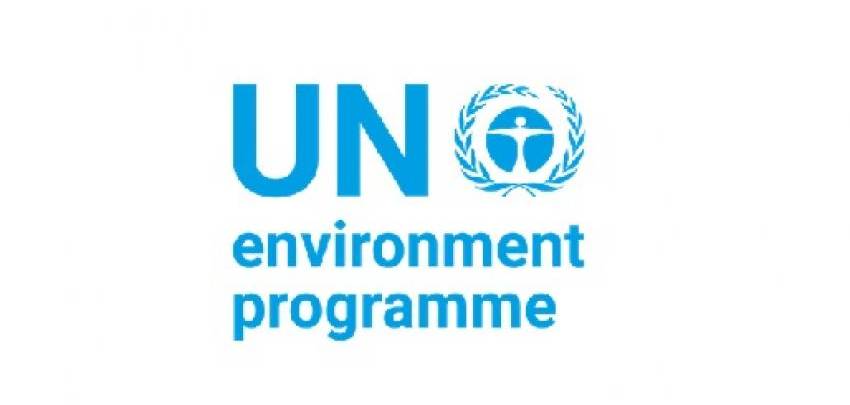
January's deadly storms in Western Europe and Southeast Africa are stark reminders of the reality of the climate crisis. Ana storm that ravaged Madagascar, Mozambique and Malawi until last week, left more than 45 000 people, including 23 000 women and children in need of humanitarian assistance , according UNICEF.
Meanwhile, Storm Malik, which hit the Czech Republic, Denmark, Germany, Poland and the United Kingdom, left thousands reeling from its impacts, ranging from power outages to the destruction of houses. These problems have been compounded by the effects of floods, which can endanger lives, further hamper the supply of electricity and prevent adequate support mechanisms.
The flood-related disasters have increased 134% since 2000 compared to the previous two decades, according to the World Meteorological Organization (WMO). As highlighted in a recent report of the Intergovernmental Panel on Climate Change (IPCC), the global temperature rise significantly affects the water cycle, making floods and droughts more extreme and more frequent.
The United Nations Environment Program (UNEP) and its partners are working to reduce the impact of floods in countries around the world.
“UNEP has no magic wand, but we work with partners to accelerate flood resilience, build capacity, promote sustainable development and collect and analyze critical data to inform policy-making,” says Lis Mullin Bernhardt, UNEP expert on freshwater ecosystems.
"We are strengthening resilience in advancing sustainable development Objective 6 ( ODD6 ) on the water and giving countries significant opportunities to advance their development programs and broader effectively climate , consistent across sectors and with longer-term viability,” she added.
Floods destroy biodiversity, lives, livelihoods, infrastructure and other assets. They can also aggravate health risks, such as cholera, as sewers overflow. Fresh and polluted water then mix. Stagnant floodwaters can encourage the breeding of malaria-carrying mosquitoes in some places.
The WMO report makes the case for investment in integrated water resources management, a comprehensive framework for managing water resources and balancing social and economic needs while protecting ecosystems, such as wetlands that mitigate flooding.
More accurate and reliable data helps identify risks. Theportal on floods and droughts , managed by UNEP-DHI (a center of expertise UNEP dedicated to improving the management, development and use of resources freshwater from local to global), aggregates and translates publicly available data from a variety of sources, making it available to water authorities in a form they can use to support decisions at the local level. The portal uses the growing opportunities offered by satellite data and cloud solutions to improve preparedness, management and response to urban floods, basin floods, droughts and coastal protection.
Meanwhile, the Global Partnership for Sustainable Development data, which ensures that the new opportunities for the resolution of data being used to achieve the SDO, has worked with partners such as UNEP, to inform flood policy in Guinea, Senegal and Togo. It organized a three-phase capacity building exercise on the use of the flood and drought portal.
The training helped Senegal improve data availability. "We learned to explore and use the data on deforestation, drought and floods in Senegal, which are often not collected at national level," says Gora Mbengue Senegalese Department of Planning and environmental monitoring.
Adaptation saves lives and resources
The 2021 UNEP report on gaps in adaptation emphasizes the crucial need to increase funding for climate change adaptation. Estimated adaptation costs in developing countries are five to ten times higher than current public adaptation finance flows, and the adaptation finance gap is widening.
“Ecosystem-based approaches, such as constructed wetlands, dedicated retention areas and restoration of vegetative cover to help mitigate the impacts of flooding, are attracting increasing attention and funding, and central of UNEP's work in the field of climate , "said Bernhardt.
As part of its mandate for SDG target 6.6, UNEP works to conserve wetlands, which absorb excess water and release it slowly, thereby mitigating the impact of flooding.
In the Comoros, for example, UNEP and its partners are helping people harvest and retain water by rehabilitating 3,500 hectares of watershed habitat. The project aims to plant 1.4 million trees over a four-year period across the country's three islands. For farmers living in increasingly parched and degraded watersheds, this ecological restoration will prevent their soils from drying out and being washed downhill. The project also improves weather forecasting systems and climate knowledge to help people change with the climate.
This example is from the new guidelines ecosystem adaptation of UNEP containing the opportunities mapping tool for eco-RRC , which helps countries to map where ecosystems, such as mangroves, forests, coral reefs and seagrass beds, overlap with vulnerable human populations storms, floods and landslides, and seeks to identify which ecosystem approaches will have the greatest impact.
UNEP also supported the rewetting of peatlands in Indonesia . Peatlands are particularly important wetlands because they store twice as much carbon as all the world's forests. Their conservation helps slow climate change and reduce the risk of extreme weather events, such as floods. The Global Initiative on peatlands led by UNEP conducts international operations in four countries initial partners - the Democratic Republic of Congo, Indonesia, Peru and the Republic of Congo - to develop, among other , rapid global assessments of peatland extent and carbon content.
UNEP, with seven other UN agencies, is part of the Initiative integrated supervision , a global program coordinated by UN-Water designed to help countries monitor and report progress in achieving the targets of the sustainable development Goal 6 . . UNEP is responsible for three of the 11 indicators: those relating to ambient water quality, integrated water resources management and freshwater ecosystems. Data collected by UNEP is being analyzed to track the impact of environmental pressures, such as climate change, urbanization and land use changes, on global freshwater resources.
Photo story : Flooding of farmland in Africa can lead to hunger. Photo: Joakim Harlin/UNEP
Posted on 2022-02-03 16:00








Comments